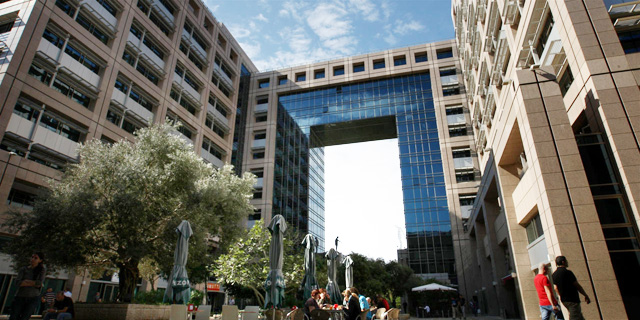
Despite Government Plans, Israeli Tech Leaders Aren’t Rushing to Send Employees to the Office
Industry executives tell Calcalist they’re satisfied with remote work productivity and will not risk workers’ health or comfort
Meir Orbach | 14:27, 16.04.20
The Ministry of Finance’s strategy to overcome the coronavirus (Covid-19) crisis highlighted the Israel tech sector as one of the first industries the ministryaims to
see resume normal work activity. But if ministry officials think a return to full operation also means going back to the office and jumpstarting the auxiliary economies that would go with it, they may have to wait a while.
Israel’s tech sector is one of the industries least affected by the crisis, and managed to continue its operations with minimum disruption. Companies were quick to understand and implement remote work procedures and for most, it was an easy transition. So when we speak about the sector going back to work,
we need to examine two avenues of activity: the first, in Israel where the employees reside, and the second, the global avenue, in particular, the U.S. where most of the business activity originates.
In Israel, the tech sector’s main contribution to gross domestic product (GDP) is through the export of goods and services: primarily through the workers’ taxes, but also through the third parties that the industry relies on, such as catering, transportation, and real estate to name a few.
The dual-path approach is exemplified by companies like IntSights Cyber Intelligence Ltd. The company’s co-founder Alon Arvatz said in an interview with Calcalist on Thursday, that they had developed an internal plan to resume full activity.
“Actually, we prepared two plans, one for Israel and one for the U.S., because the circumstances in each are different,” Arvatz said. “We have an overall social responsibility to put the Israeli economy on its feet. Even if our business was not directly harmed during this period, our suppliers, some of whom are small businesses, like cleaning, catering, and delivery services, have been. Some even mortally. As executives of startups and tech companies, we need to show overall responsibility for driving the Israeli economy. Right now, a type of restart is needed, not only for the industry itself but also for its second and third level dependents. We must not forget that Israel is on its way out of the crisis, but in the U.S. there is still a long road ahead and that’s where the tech companies' market is."
If the officials at the finance ministry are banking on the fact that tech and finance workers will be returning to their Tel Aviv region offices promptly, they need to make that clear. Conversations with senior industry executives suggest that many of them don’t see a resumption of normal office hours in the foreseeable future. Neil Corney, Citi Israel CEO said the bank plans to follow the strictest guidelines when it comes to the resumption of activities, whether they are determined by the Israeli health ministry or Citi’s corporate headquarters. Moreover, Corney said, “Israel will not be the first place where employees to return to work from the office. We will wait to see how things play out in Citi’s worldwide branches and only then formulate our plan. There is no immediate pressure to go back to the office because we are in excellent shape in terms of output.”
Corney said he also has an eye on the local education system, saying he does not intend to force employees whose children are at home to return to work in the office.
“We are not going to rush things, even if the government decides to send employees back to work in May. This crisis shattered all of our preconceptions. if we used to worry that remote work would harm employee productivity, we can now clearly state that workers are extremely productive from home,” Corney said.
Asaf Peled, the CEO and co-founder of MinuteMedia Ltd., echoed Corney’s sentiment. “We will bring the workers back gradually while ensuring their safety and protection. Productivity issues don’t bother us anymore, in fact we are experiencing synergy between workers’ health and the business’ benefit. We will return at our own pace, see how things go in other countries where we have affiliates and reach a conclusion on a country by country basis. We are unwilling to compromise when it comes to our employees’ health and will continue working remotely until we are positive that they will be safe.”

